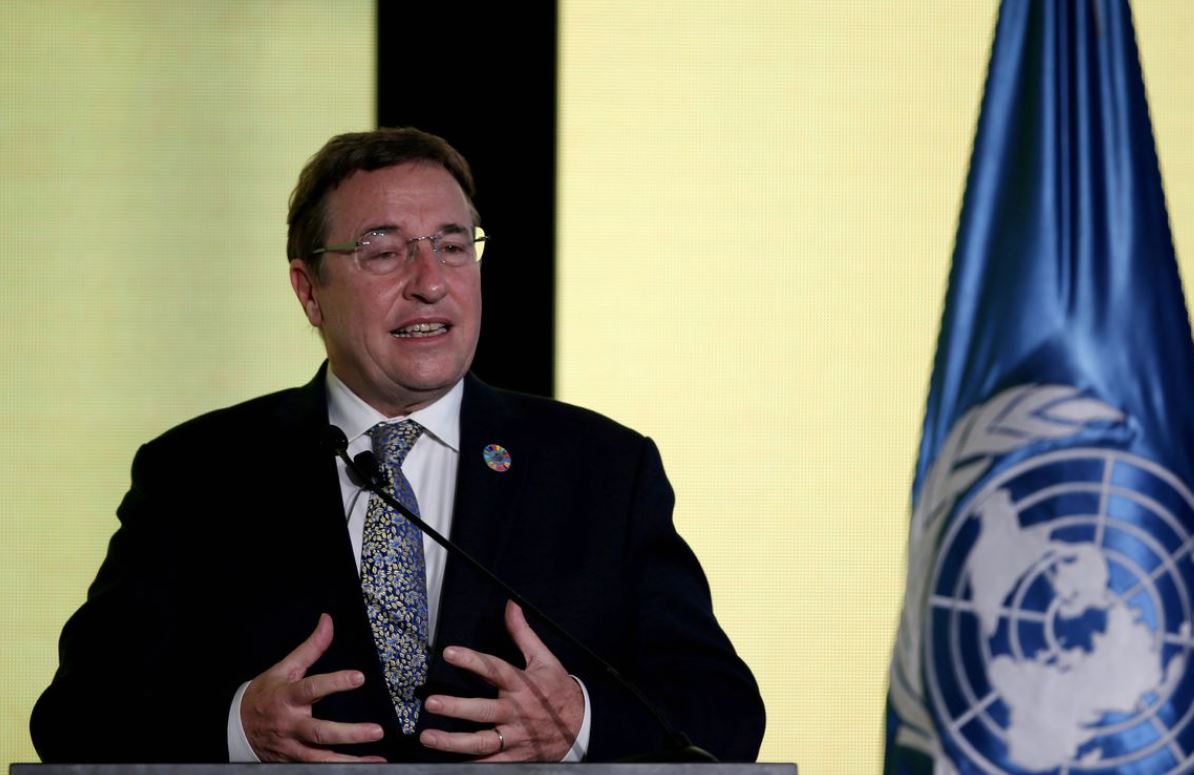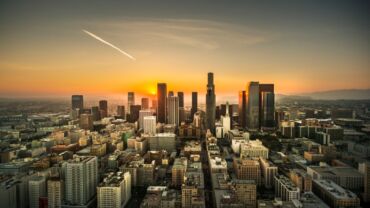In a special Reuters Newsmaker interview on Earth Day, the UN’s Achim Steiner talked about the critical urgency for addressing climate change
Human civilization is at a transformational inflection point, one that requires world leaders to cooperate in the fight against climate change and embrace the grand project of the 21st century — a global push to wean the world off of fossil fuels, restore biological ecosystems, and revise the economic incentive structures of capitalism to encourage investment in a more sustainable, equitable future.
That’s a big ask, but not an impossible one, said Achim Steiner, administrator of the United Nations Development Program (UNDP), in a Reuters Newsmaker interview on Earth Day.
Steiner is hopeful about the future, he said, because “on the one hand, we have an understanding of what is happening; but on the other hand, we have choices as no generation before us has had. We have more technology, we have more science, we have more wealth in the world — all of which we can deploy to make different choices and pathways possible.”
A cost too high
As hopeful as he is, however, Steiner is also a clear-eyed realist. “We are perhaps 10 years away from no turning back, and the implications of that are extraordinary,” Steiner explained. “We are essentially condemning hundreds of generations to not having an option of reversing a set of decisions premised on the spurious argument that cheap access to fossil fuels is a fundamental human right.”
The human cost of inaction on climate change is difficult to quantify, but a report released on Earth Day by insurance giant Swiss Re Group took a stab at putting a number on the economic cost: $23 trillion. That’s the global gut punch Swiss Re estimates the world economy will take if 2050 climate targets are not met and the future becomes an endless battle against rising seas, falling crop yields, collapsing ecosystems, deadly pandemics, and more extreme and unpredictable weather patterns.
The stakes couldn’t be much higher, Steiner noted, but he also sees signs of progress.
Steiner cited President Joe Biden’s Earth Day pledge to cut U.S. carbon emissions in half by 2030, along with promises of action from the world’s two leading polluters, China and India, as indications that global leaders are approaching a consensus on climate change. Recent proclamations by the Bank of England and the International Monetary Fund imploring investors to include climate risk in their decision-making criteria is another sign that “everyone is coming together and pulling in the right direction,” he said.

Still, there is an extraordinary amount of work to be done in an extremely short time frame, Steiner warned, and much of this work requires re-thinking the guiding paradigms of global capitalism. “Financing this transformation cannot just become a debate about who is responsible for paying for what — that’s a zero sum game, a failure from the start,” Steiner said. Instead, he proposes that nations need to develop a more cooperative “co-investment” mindset that prompts different kinds of decision-making and more long-range awareness about which policies are really in a country’s best interests.
Take the situation in Africa, for example. There, 600 million people do not have access to electricity, Steiner noted, so for African governments, creating access to electricity is a top priority, one that will accelerate development on all fronts. “Is it so difficult for us to envision co-investing with African governments right now in a massive increase in access to electricity, but doing it with a renewable energy infrastructure?” Steiner asked.
It had better not be, because the alternative is unthinkable, he insisted. “Imagine 2 billion African citizens by 2050 using the fossil-fuel matrix of Europe or the U.S. in the 20th century. You can forget about the Paris Agreement” and all the other efforts to mitigate climate change, he warned. “We will have lost the battle.”
Public & private cooperation
If one is looking for evidence that the world’s wealthiest nations still aren’t taking climate change seriously, one need only look at how difficult it has been for the United Nations to collect the $100 billion per year pledged in the Paris Agreement, he added. This pledge was made by developed countries to help developing countries combat climate change. Yet, considering the trillions of dollars being mobilized in the midst of a pandemic, the fact that the world’s wealthiest nations can’t come up with $100 billion per year to co-invest in infrastructure for developing countries only illustrates their lack of commitment, Steiner suggested.
As important as mobilizing governments is, however, relying on them to solve the climate problem without the cooperation of the private sector is another losing proposition, he observed. Given that there are more than 40,000 companies in the world, most of which are small businesses, Steiner posed an important question: “How do you get this disparate group of actors that define the vast majority of our economic decisions every day to be aligned, supported, and ultimately incentivized to be part of the solution — rather than saying the state is going to fix the problem, so we’ll continue to serve our shareholders?”
Steiner described shareholder tunnel vision as an unfortunate “anachronism” of outdated business priorities, and said that too many influential players in the financial markets are “investing too many of our financial resources into a 20th-century economy.”
In 2015, the United Nations took an important step toward uniting the goals of the public and private sectors when it published its 2030 Agenda for Sustainable Development, which contains the now infamous 17 Sustainable Development Goals (SDGs) that U.N. member states have ostensibly pledged to pursue. Steiner dismissed those who complain that 17 SDGs is too many. “Welcome to reality!” he said. “When you share a planet with 9 billion people, and have to manage their consumption, their environment, and their systems, it is more complex.”
Governments and companies don’t have to take on all 17 SDGs at once, Steiner explained, adding that to get started, they can pick one or two and focus on those. But companies that have embraced the U.N.’s SDGs and woven them into their business plans are playing an important leading role in establishing how companies can forge a responsible, sustainable — and yes, profitable — future.
“Companies that have embraced SDGs are asking themselves: ‘What kind of society do we want to live in, and what are we going to do about it?’” Steiner said.
Steiner’s bottom line: If we want to keep celebrating Earth Day, these are the questions all of us need to be asking.







